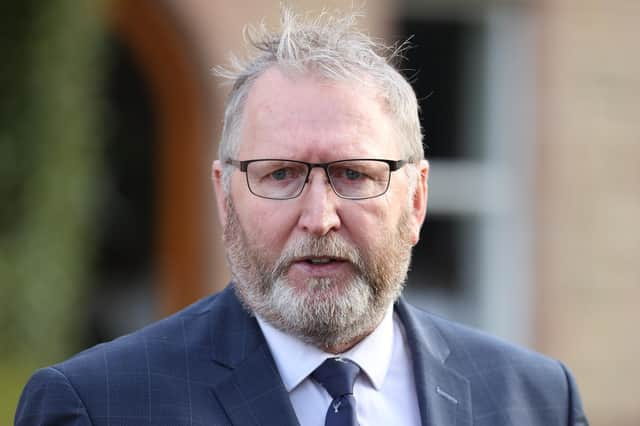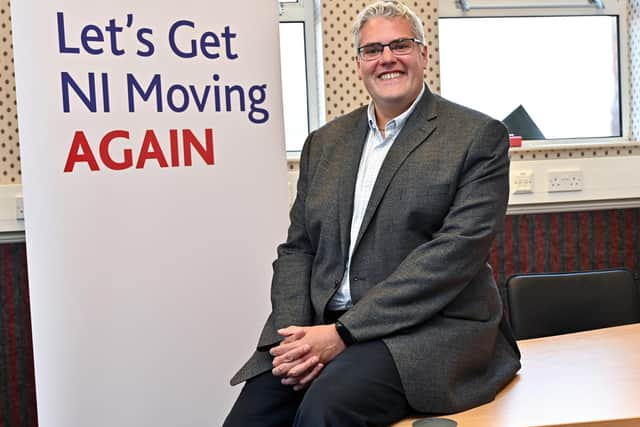Doug Beattie: If Stormont doesn't return - Northern Ireland could be governed by 'unelected committee'


Nationalists and Alliance say the Irish government should have a greater role – but that has been rejected by the DUP.
Writing in today’s News Letter, the Ulster Unionist Party leader Doug Beattie says that the governance of Northern Ireland may now involve “an unelected committee comprising Northern Ireland Civil Service permanent secretaries and UK government officials from various sectors. This arrangement would be part of primary legislation at Westminster, necessitating action by the secretary of state, as the Executive Formation Bill's January 18 deadline has passed”.
Advertisement
Hide AdAdvertisement
Hide AdThe Upper Bann MLA added: “Northern Ireland would then be governed by an unelected committee, raising questions about influence, scrutiny, transparency, and decision-making processes. While the outcomes may be visible, the process leading to those decisions may remain undisclosed.”


The Northern Ireland Office has been contacted for comment.
Asked by the BBC yesterday if there needs to be an increased voice for the Irish government in future governance arrangements, Alliance MP Stephen Farry said “yes, absolutely”, adding that it would be a consultative role rather than an “executive” one.
The North Down MP said: “There are structures there already in terms of the British Irish Council, where that can be taken forward. I don’t see it being at a very granular level, it will be at a high level in terms of those engagements.
“But that is the direction of travel. And for those who are seeking direct rule as a fallback, they have to be extremely aware of where this is going to go. And it’s bizarre, illogical, in terms of the position they’re taking.”
Advertisement
Hide AdAdvertisement
Hide AdCommenting last week after Stormont failed to elect a speaker, Secretary of State for Northern Ireland Chris Heaton Harris said: “In the absence of an executive, the government will proceed with a pragmatic and reasonable approach to support Northern Ireland.”
The government has previously ruled out any joint authority between Dublin and London.
However, the idea has been floated by the Tory chair of the NI Affairs Committee Sir Robert Buckland in recent weeks.
The DUP described Sir Robert’s intervention as a “hollow threat”. Deputy leader Gavin Robinson said the Republic of Ireland has no legal basis for governing Northern Ireland.
Advertisement
Hide AdAdvertisement
Hide AdThe East Belfast MP said: “Such a step would be a further breach of the Belfast and successor agreements.”
He said it was the arrangements flowing from the Northern Ireland Protocol alone that are stopping the formation of an executive.
Mr Robinson said: “Replacing the protocol with arrangements that unionists, as well as nationalists can support, will provide a solid foundation for the restoration of devolution on a cross community basis.”
Comment Guidelines
National World encourages reader discussion on our stories. User feedback, insights and back-and-forth exchanges add a rich layer of context to reporting. Please review our Community Guidelines before commenting.